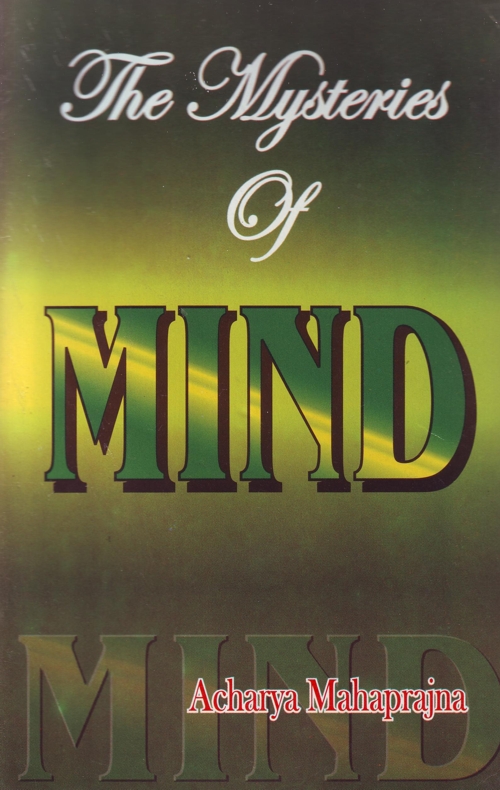
The principles I have discussed above are the principles of mental health as well as those of the feeling of equality. The feeling of equality can be achieved through tolerance only. It will always make the mind wholesome. An equanimous mind faces the ups and downs of life with a smiling face.
The mind undergoes innumerable modifications. It changes every moment. It cannot be tied down to a single former state. It is always uncertain and unpredictable. Tolerance stabilizes it. The feelings of tolerance and equality make it behave in a uniform way in all kinds of circumstances. The Ayurveda takes into consideration not only physical health but also mental health. The question as to who can be called a healthy man is answered thus: If the metallic contents of the body are well balanced, if the body has the required heat in it, and if it functions normally without being oppressed by elements which produce disease, if its sense-organs are not wayward but controlled and if it keeps the mind cheerful, it can be said to be healthy. If one is healthy, his body functions smoothly and his mind remains cheerful. Cheerfulness of the mind is not joy because joy is always mixed up with sorrow. Joy and sorrow always follow each other by turns. Cheerfulness of the mind means purity of the heart, which is different from joys and sorrows. Purity of the heart is like purity of the sky. There are no clouds and dust in the pure sky. Joys and sorrows are like the clouds and dust. A healthy mind and a healthy body are inseparable. In the same way mental health and the feeling of equality are inseparable.
There are certain constant factors in each personality. Psychologists speak of personality parameter. They take the following factors into consideration in defining personality. The first is dress. A man's dress shows how much self-conscious he is. The cheerfulness of his mind can be measured in terms of his dress. The second is behaviour. In defining the personality of a man we have to see whether he behaves uniformly in the midst of joys and sorrows or whether he is erratic. A mentally healthy man will never lose the balance of his mind in adverse circumstances. He will impress others with his modesty, tolerance and behaviour.
Abraham Lincoln was a spiritually inclined man. He would behave with his visitors in a very courteous manner. He would treat them as his equals. His friends thought that he was making himself cheap and advised him to maintain the dignity of the office of the President of America. Lincoln told them that as the President he would not like to be less courteous than any body. He would not like to appear to be snobbish before modest and courteous citizens. The dignity of the President lay in his modesty and courtesy,. A mentally healthy man would not give up his courtesy even if someone behaved with him discourteously. He is good to the good as well as the bad. There is no reason why one should behave with mentally unhealthy people discourteously. Those who behave in the wrong way are mentally unhealthy and weak. Tit for tat is.the policy of the weak. If your opponent is mentally unhealthy and weak, you should show to him the strength of your mind by behaving with him in a healthy way so that he may realize his own weakness.
The third test is thoughts. One of the causes of the lack of peace of mind is that people do not know bow to think rationally. Thoughts do not stay long in an unhealthy mind. He starts thinking of one thing and soon switches over to another. The nature of a man is known by the thoughts he thinks. His mental health is also ascertained by means of his thoughts. Only a mentally healthy man thinks in a sound manner.
Let us consider what is meant by sound thinking. Once Acarya Bhiksu was sitting under a tree alone. A caravan happened to pass by that way. A few people from the caravan came to him and asked who he was. The Acarya Bhiksu said that he was a monk and that his name was Bhikhana. The men began to wonder if he was the same man who was being praised everywhere. They had drawn a different image of him in their minds. They had imagined him to be a highly impressive personality surrounded by a crowd of followers. Seeing him alone and very modest they fell into a dilemma. Acarya Bhiksu showed no concern with what they had been thinking of him because his mind was fully composed. He cared neither for praise nor for blame. He did not like to be surrounded by pomp and show. It was because he was simple and modest that people had a high regard for him. Only he who enjoys being alone knows that he is worthy of his followers.
The fourth criterion of personality is how it reacts to situations. The reactions of a man to situations is the key to his mind. If people become angry with a mentally healthy man, he would remain calm and composed. A son once became awfully angry with his father. But the father remained calm and patient and assured the son that he still had the same regard for him. This had a great effect on the son and his anger subsided. A confrontation between the father and the son was avoided.
The fifth test of mental health is nature i.e. whether a man is diligent or dull or optimistic or pessimistic. There are people who are pessimistic even in the most favourable circumstances. On the other hand, there are people who would remain robust and full of hope even in the most adverse situations. People with a confident and cheerful mental composition will make every one cheerful. They are great realists and would never become a victim of escapist tendencies.
Acarya Bhiksu had an ascetic called Beni Rama in his fold. One day Muni Beni Rama went to collect food for himself as well for the Acarya. He brought two pulse preparations mixed in his begging bowel. When asked how the two preparations got mixed, he replied: "After all both the preparations were made of pulses." Acarya Bhiksu remarked: "It is true, but an ailing monk cannot digest Urad, only Moong suits him. Muni Beni Rama was annoyed, left the Acarya and went into the adjoining room, lay down and went to sleep. Acarya Bhiksu asked," Where is Beni Rama? When told that the muni was sleeping in the next room the Acarya again asked, "Whose fault is he contemplating, mine or his own?" On hearing this, the muni presented himself before the Acarya and apologised for his impudence.
There are some who fill us with enthusiasm while there are others who dampen our spirits. The fifth test of a healthy mind is the power of decision.
The mental health of a man can be known from the fact whether he can take quick decisions or becomes ambivalent.
We have discussed the six tests laid down by the psychologists for ascertaining whether a mind is healthy or unhealthy. We have also discussed the principle of equality. We have come to the conclusion that a man who leads a balanced life or a life full of the feeling of equality and tolerance and keeps his mind restrained is a mentality healthy man. Mental health is the greatest consequence of a life full of feeling of equality One who does not attach importance to the principle of equality cannot possess a balanced mind. A man with a balanced mind is very careful about his mental health, which he takes to be a heritage worthy to be preserved. Mental health is nothing but the feeling of equality.
 Acharya Mahaprajna
Acharya Mahaprajna

